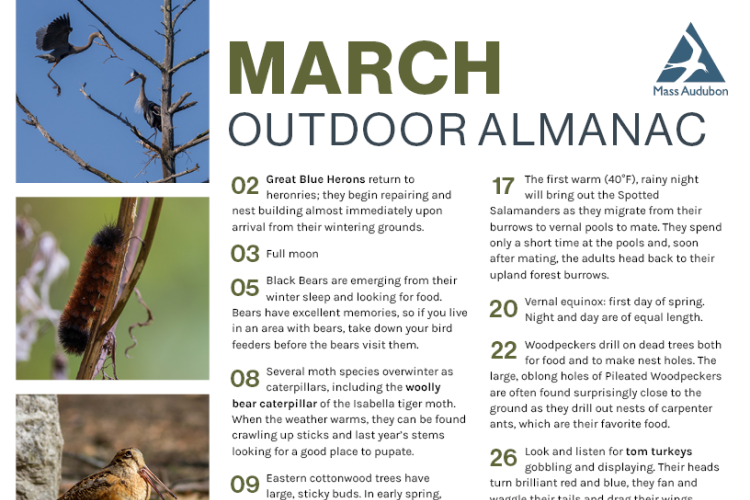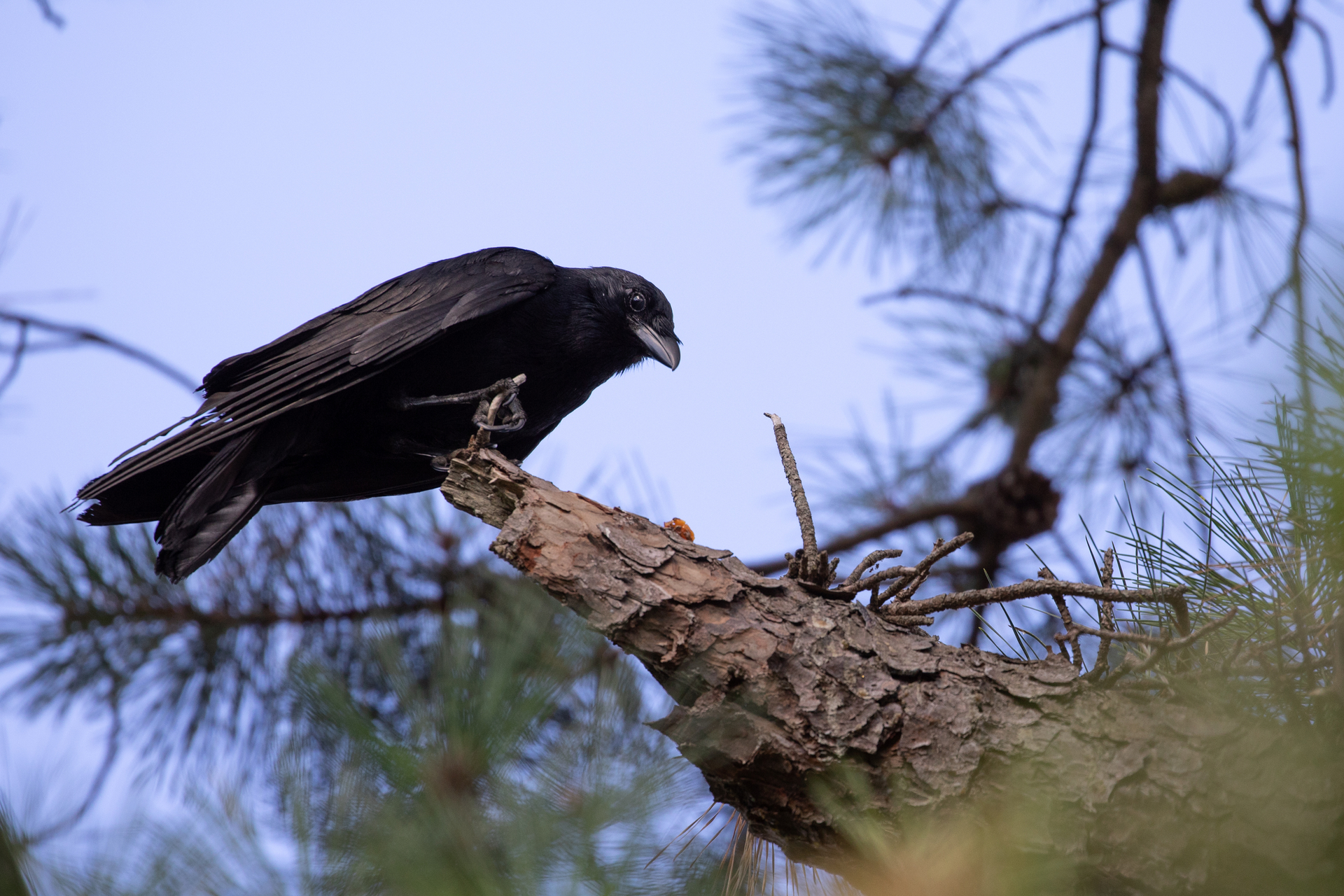Outdoor Almanac
March brings unmistakable signs of spring across the landscape, from returning wildlife to the first stirring sounds of courtship and song. In this month’s Outdoor Almanac, find out more about great blue herons reclaiming their nesting colonies, listening for the peent of American woodcocks, and watching for amphibians making their nighttime migrations to vernal pools. Whether you’re heading outdoors or observing from home, March offers a front-row seat to spring’s slow but steady arrival.
What will you discover this March? Visit a nearby wildlife sanctuary or join a program to make the most of your month.

Outdoor Almanac
Download or print this month's outdoor almanac.
MARCH
2
Great Blue Herons return to heronries; they begin repairing and nest building almost immediately upon arrival from their southern wintering grounds.
3
Full moon.
5
Black Bears are emerging from their winter sleep and looking for food. Bears have excellent memories, so if you live in an area with bears, take down your bird feeders before the bears visit them.
8
Several moth species overwinter as caterpillars, including the woolly bear caterpillar of the Isabella tiger moth. When the weather warms, they can be found crawling up sticks and last year’s stems looking for a good place to pupate.
9
Eastern cottonwood trees have large, sticky buds. In early spring, honeybees, which are not native, collect the resin to make propolis, a protective glue that they use to seal their hives.
10
Keep an eye out for colorful golden yellow jelly fungus, often called witch's butter, found on smaller dead branches with the bark still attached. On warmer days, snowmelt rehydrates the fungus which can appear almost glowing in the forest detritus.
13
American Woodcock nuptial flights begin about this time, as the snow melts back in open fields. Around sunset listen for the peent call and the whistle of wings.
16
Listen for the ducklike quacking courtship calls of male wood frogs. These frogs return to their vernal pools so early that there is often still ice on the water. Wood frogs only reproduce in vernal pools, so if you hear wood frogs, you know there is a vernal pool nearby.
17
The first warm (40°F), rainy night will bring out the Spotted Salamanders as they migrate from their burrows to vernal pools to mate. They spend only a short time at the pools and, soon after mating, the adults head back to their upland forest burrows.
20
Vernal equinox: first day of spring. Night and day are of equal length.
22
Woodpeckers drill on dead trees both for food and to make nest holes. The large, oblong holes of Pileated Woodpeckers are often found surprisingly close to the ground as they drill out nests of carpenter ants, which are their favorite food.
26
Look and listen for tom turkeys gobbling and displaying. Their heads turn brilliant red and blue, they fan and waggle their tails and drag their wings across the ground as they strut back and forth. When you find displaying toms, look around to find the hen, who is usually nearby but often hidden from view.
27
Crows are among our earliest passerine (perching bird) nesters. Listen and watch as they interact with one another and eat almost anything they can find, from black walnuts to roadkill gray squirrels.
30
Skunk cabbages, among the first plants to emerge in spring, are fully leafed out in stagnant wetlands. Soon their unpleasant odor attracts pollinators such as flies and beetles.
Upcoming Programs this Month
See MoreThe Nest Nature Journal Club
-
Museum of American Bird Art Education Center, Canton
-
Thursday, March 5
10:30am-12:30pm
Adults
Nature Time: The Night Sky
-
Blue Hills Trailside Museum, Milton
-
Thursday, March 5
1:00-1:45pm
Families - children 2 - 6 years
Create and Connect: Nature and Art Open Studios
-
Museum of American Bird Art Education Center, Canton
-
Thursday, March 5
1:00-2:30pm
Adults
Printmaking Open Studio
-
Museum of American Bird Art Education Center, Canton
-
Thursday, March 5
1:00-2:30pm
Adults
Friday Morning Birdwatching - Cape Ann
-
Cape Ann, Rockport
-
Friday, March 6
8:30-11:30am
Adults
First Fridays Community Gathering
-
North River Wildlife Sanctuary, Marshfield
-
Friday, March 6
9:00-10:30am
Adults
Stay Connected
Don't miss a beat on all the ways you can get outdoors, celebrate nature, and get involved.



